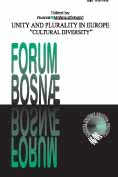
Articulating Evil / Lessons for Bosnia
Articulating Evil / Lessons for Bosnia
Keith Doubt, Understanding Evil: Lessons from Bosnia (New York: Fordham University Press, 2006).
More...
Keith Doubt, Understanding Evil: Lessons from Bosnia (New York: Fordham University Press, 2006).
More...Ireland will have a second referendum on the Treaty of Lisbon. There is now a distinct probability that the Irish will vote “Yes” after all. But what happens then? European policymakers, in the light of the forthcoming European elections, should first take to heart five lessons distilled from the debate about the treaty.
More...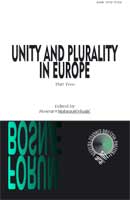
Keywords: conception of evil and its Bosnian contextualizations; scapegoating ritual; sociocide; Yugoslavia; Serbs; Bosnia and Herzegovina; ethnic cleansing
Reflections on Keith Doubt, Understanding Evil: Lessons from Bosnia (New York: Fordham University Press, 2006)
More...Keywords: policy analysts; policy consultants; policy actors; policy analysis
The author points out empirical indicators to distinguish “consultants” from analysts as “independent policy actors”. The complexity of decision-making processes in modern states created demand for independent expert support. This demand has been satisfied by new institutes of intellectual political support – think tanks. Support, an estimation of political decisions and alternatives, generating of ideas, education and elite formation became their functions. According to the functional approach, due to the complexity and scale of modern administrative problems, the expert became an integral part of the decision-making process. In differentiated social systems, in order to increase the efficiency of decisions and to maintain the social “feedback” mechanism, policy-makers involve experts, including think tanks, to work out new and to estimate old political decisions. In these processes think tanks are engaged, conducting researches and consultations for the decision-makers. So in modern states the mechanism of “feedback” is carried out. In practice, we can see some analysts and experts who pretend to play a dominant role in policy; some who legitimize policy of the government, decisions of a political leader or a current political regime; some who conduct professional research and development of the “feedback mechanism” within a policy cycle; and some who have real power on minds of the elites and/or citizens. The author aims to figure out the factors that influence the changing political status of the analysts, what makes them independent political actors, and in what conditions they come to serve the elites’ interest. And, most importantly, how we can fix or stabilize the analysts’ status as independent and powerful political actors even in an unfavorable political climate.
More...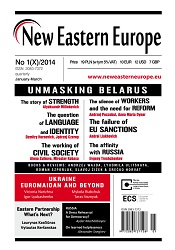
Keywords: Eastern Partnership;Vilnius Summit;Ukraine
The Eastern Partnership Summit in Vilnius must be seen as an opportunity to review the goals of Europe’s policy in the region. Thus far, the policy has been understood as the spread of European values and norms in the neighbourhood. But, the cases of Ukraine and Armenia show that competing integration projects could further reduce the EU’s abilities to tie the neighbouring states to Europe.
More...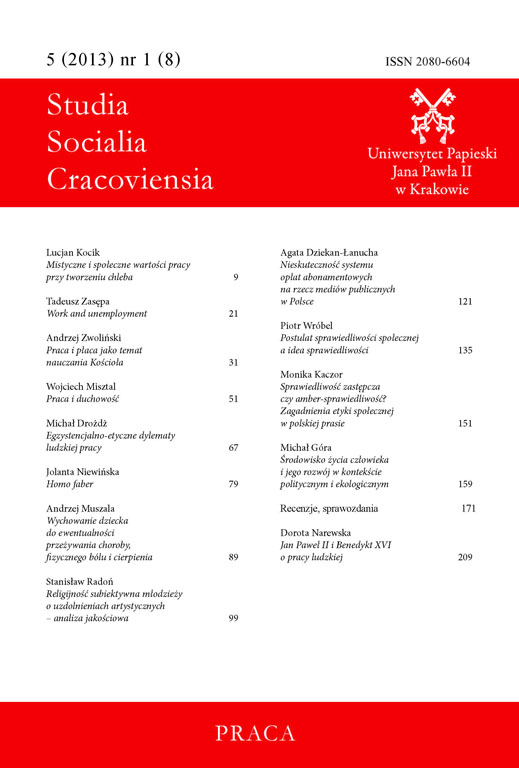
Keywords: work; unemployment; Church;
The article looks close at labor from a Christian perspective. The author discusses the value of labor and its role for human life as well as for community. He addresses issues related to unemployment, lack of jobs and impact of them on human life. These issues are placed in the social, psychological and theological context.
More...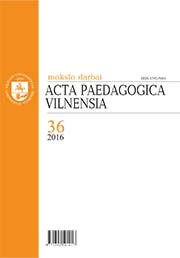
Keywords: independent work; autonomous learner; ability to learn; generic competences; teacher training; life-long education;
At university level, students’ independent work is seen as a powerful means of preparing them for autonomous life-long learning. The article analyses the data of the survey of students’ attitude (N = 89) towards independent work carried out at the Lithuanian University of Educational Sciences (LEU) in January 2015. This study concerns the students’ perception of independent work, skills needed for conducting the independent work assignments successfully, and ranking of the skills according to their importance, the necessity of independent work at university and satisfaction with the independent work results as indicated by the students themselves. The results of the survey revealed a generally positive attitude of students to this part of their academic workload in the context of the recently introduced changes to the study programme of English Philology. The acquired data may be used to improve the organisation and content of independent work in the initial teacher education at university.
More...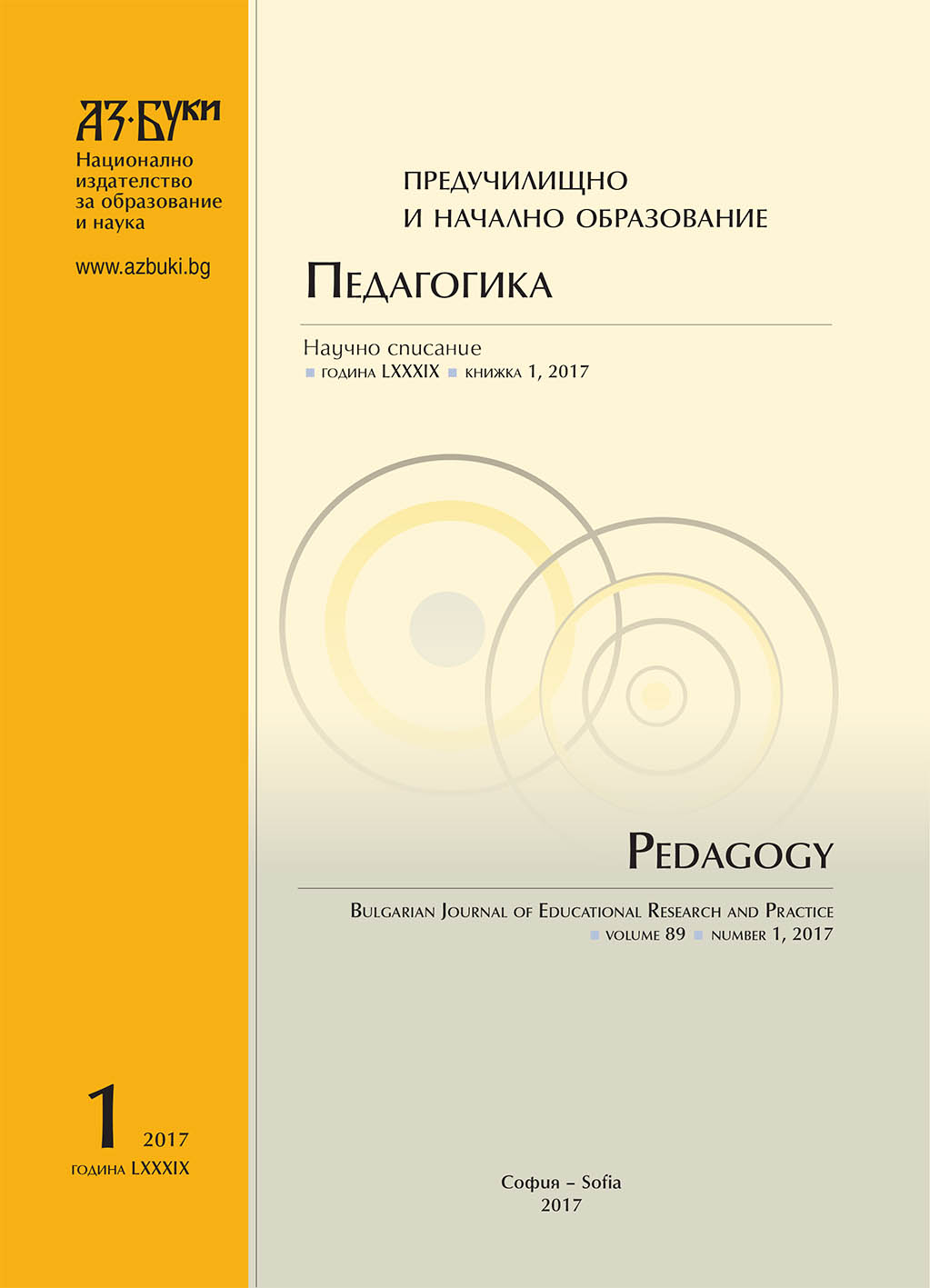
Keywords: individual approach to person; time; features of the person
The article presents the use of time on the development of abilities of each student, paying attention only on the positive aspects of the child’s capabilities.
More...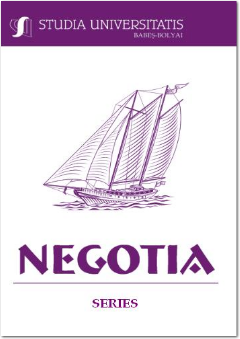
Keywords: accounting proficiency; audit; independent review; SME finance; SME sustainability.
SME accessibility to finance is widely regarded as a crucial contributing factor to sustainability. It is also generally accepted that access to finance is considerably more difficult for SMEs than for larger corporations. The statutory audit of financial statements for qualifying SMEs in South Africa has been abolished and replaced with the option to do an independent review of the financial statements. This paper considers this abolishment from two perspectives. Firstly, the problem being investigated in this study is whether the lack of audited financial statements has negatively affected SME access to bank financing. This is done by testing the perspectives of SME owners/managers in this regard. A further problem looks at mitigating action SMEs can take to improve their risk profile during a banks assessment of a loan application. Knowledge of basic accounting principles has been identified as a potential mitigating factor by various researchers. This study gains insight into the views and perceptions of SME owners/managers pertaining to their perceived accounting knowledge and or skillsets.
More...Keywords: cultural studies; synergy; region; cultural continuum of Ukraine; humanitarian strategy; cultural and creative processes; projects of NAKKKiM;
The article defined by a synergetic approach to the study of cultural and creative processes of modern Ukraine, showing the path of synergistic socio-cultural development of regions of Ukraine. It analyzed the concept of "historical memory" and its importance in ensuring continuity and identity formation. The mechanism of reproduction of historical memory, which is the basis of humanitarian projects NAKKKiM, used in representations of the cultural history of Ukraine. As a result of the research concerns the cultural synergy of regional identities in Ukraine, the article shows a hierarchical model of national cultural space. These examples of the synergistic approach to the cultural and creative processes, the inclusion of Ukrainian culture in the global context. It reveals the idea of synergy of Ukrainian culture with the dialectic of regional chronotopes and general laws of occurrence, development, transformation of certain ethno-national communities, regions and local areas and their union in a holistic polilogical cultural continuum of Ukraine.
More...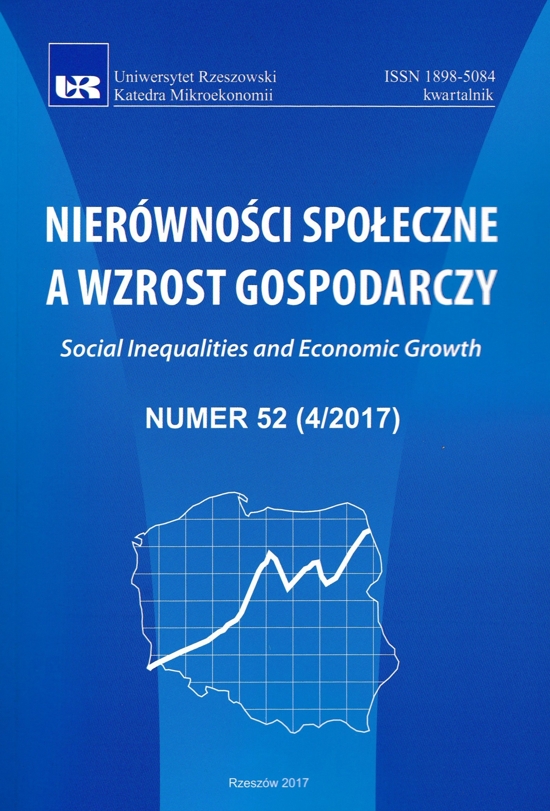
Keywords: Polish economy; transformation; economic history
The article compares the characteristics of state and market-driven coordination. It derivesfrom them the need to return to capitalism. The author describes the role of the state in the processof market liberalization of the centrally planned economy, the dilemmas of state modernization,the problems emerging from the overstressed dynamics of the transition to the market. Against thisbackground, the main features of Polish transformation have been described and the mistakes madehave been identified. The author also answers the question of whether the choice of an alternativemodel of capitalism was possible than that proposed by the Washington consensus. The author postulatesthe use of the conclusions of the critical analysis of the Polish way of transformation in thenew wave of reform of the economy and the functioning of the public sector in Poland.
More...Keywords: integrated lessons; work experience; geography teachers; students;
Analysis of scientific literature and educational documents showed that integrated education, providing grounds for manifestation of multi partite intelligence, creates the background for all subjects to serve as the linking part of education. Qualified knowledge of relationships between subjects and their integration help the students to use their abilities and give sense to learning, facilitate better memorization of the necessary information, deepen, broaden and correlate knowledge and abilities, stimulate learning motivation, develop students’ ability to communicate and cooperate, allow qualitative distribution of learning time, and encourage the teachers to work as a team. The analysed scientific works are devoted to integration methods, levels and models and discuss the problems and possibilities of integrated education. Yet there is lack of research works dealing with generalization of experiences of teachers giving integrated lessons in comprehensive schools, possibilities of cooperation with other interested parties, highlighting the merits and demerits of integrated lessons and most popular didactic methods and teaching/learning strategies, attitude of teachers towards integrated lessons, and correlation of integrated lessons with dynamics of teaching/learning results. Analysis of scientific literature and educational documents served as a basis for formulation of the present research issue: the attitude of geography teachers towards the integrated lessons emphasizing the above-mentioned aspects.
More...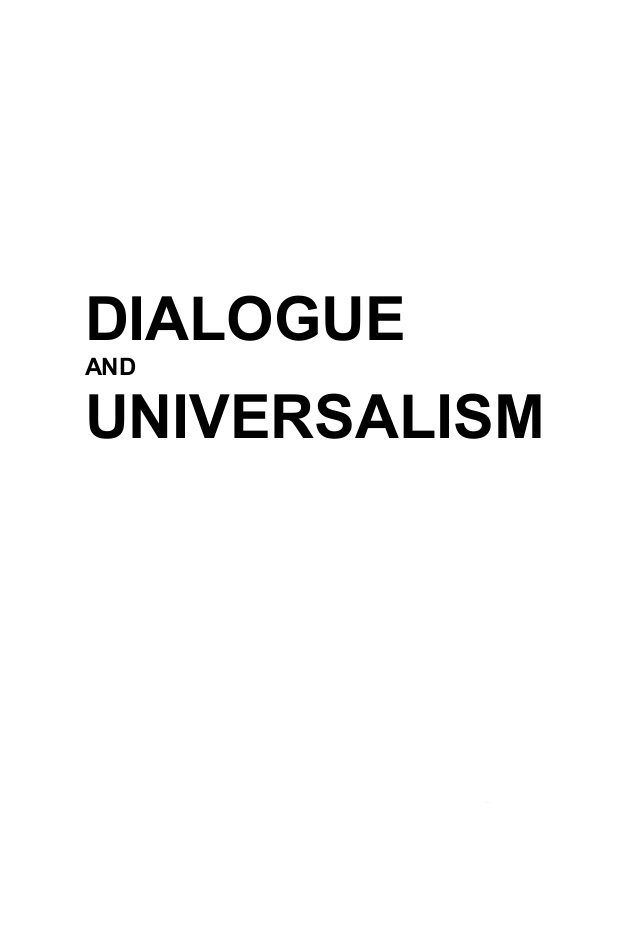
Keywords: Antonio Gramsci; Cornelius Castoriadis; hegemony; Marxism; philosophy; praxis
For many intellectuals, including the philosopher Cornelius Castoriadis, the histori- cal destiny of Marxism-Leninism has discredited the philosophy of praxis. It can no longer serve as a source for radical political thought. Analyzing the theoretical contribu- tions of the Italian Marxist Antonio Gramsci, we argue that a renewal of Marxism is both possible and needed. After more than forty years of neoliberal capitalism, a revital- ized Marxism can contribute to the critique of contemporary forms of economic exploi- tation and statist domination. We propose that it is the concepts developed by Castoriad- is that need to be translated and adapted to this reformed philosophy of praxis.
More...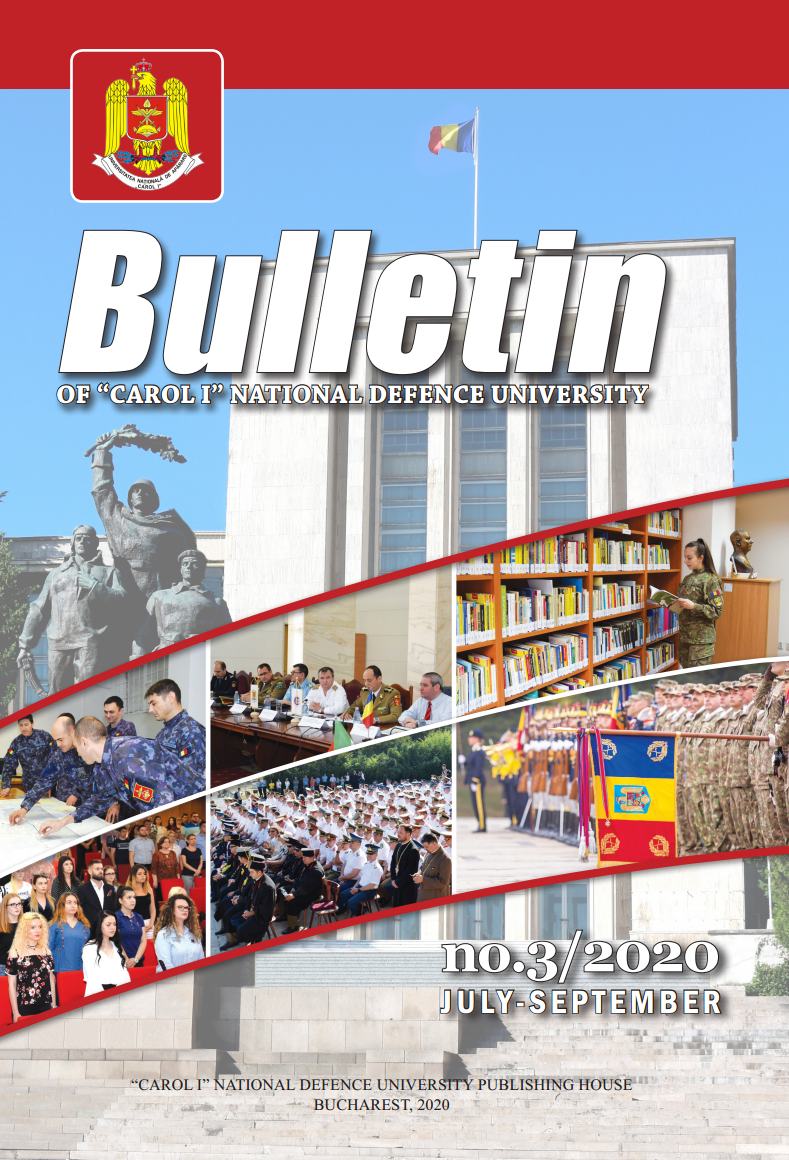
Keywords: game; movement; education; physical education; military;
The relationship between social reality and the formation of intellectual-educational and motor skills in participants in military education and not only, information and behavioral transfer between the two environments, is based on creating viable connections and finding applicable solutions from one environment to another, on a definite anchorage of the knowledge acquired for the real world. This relationship can be strengthened through a multidisciplinary approach, in which each field studied, each subject covered within the educational program can contribute to strengthening the reality-training bond. In military education, this relationship acquires complex valences and connotations, if we look at the purposefulness of the educational act, in which each subject covered will influence the finished product. This material offers another perspective of a means specific to the military physical education subject in military education, that of games in the training during physical education lessons.
More...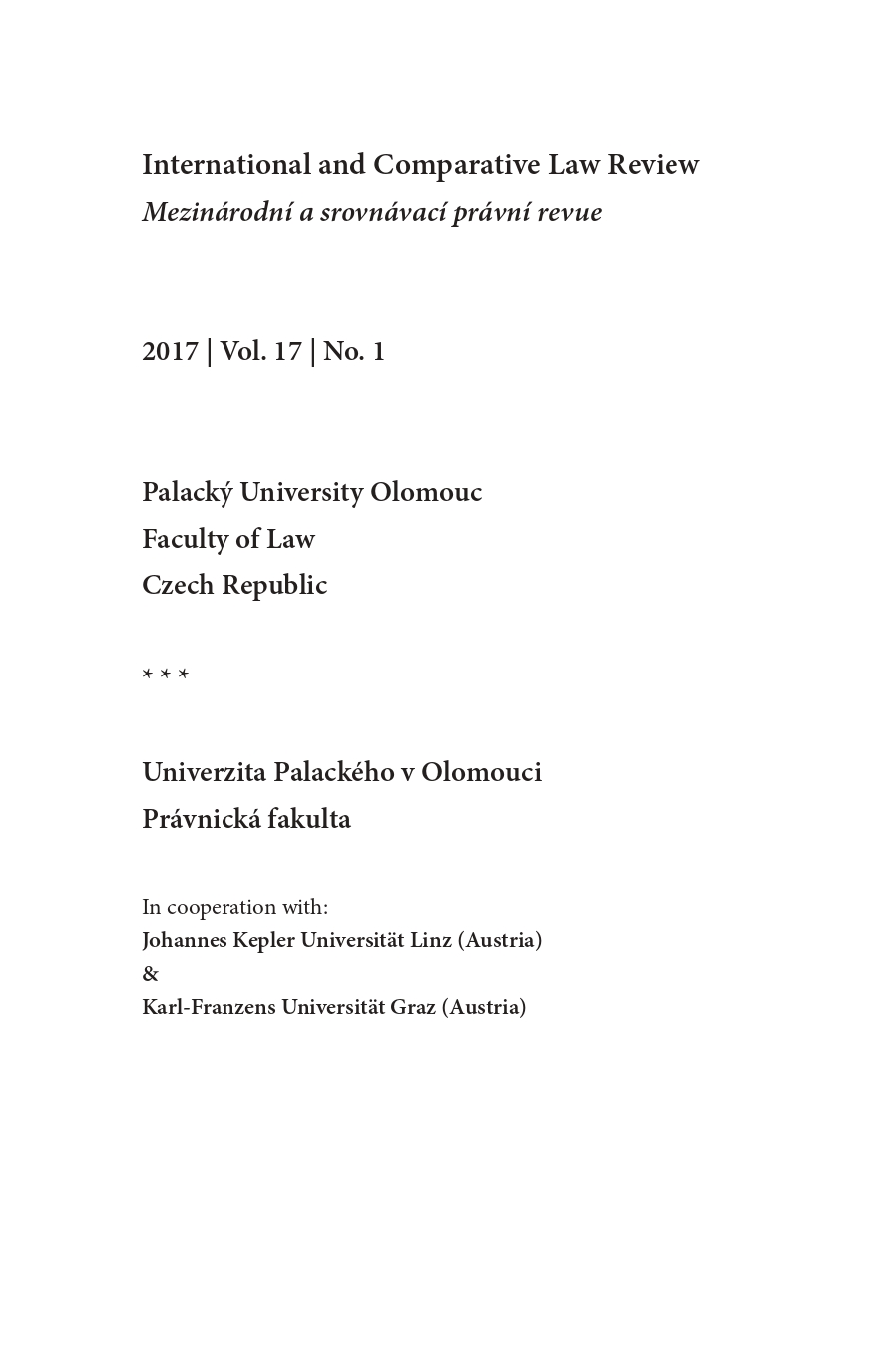
Keywords: constitution; common citizenship; self-actualization; institutional arrangements; rule of law; peaceful coexistence; differentiated citizenship; ethnocultural diversity;
Since the colonial period in Africa, ruling elites have manipulated laws regulating citizenship to advance their political and economic interests. The European colonialists used citizenship laws to enhance their ability to maintain control over the colonies and minimize the ability of Africans to fight for independence. Many Africans believed that independence and the establishment of new institutional arrangements would allow them to develop a common national citizenship, one in which all the citizens of each country would have equality before the law and be granted equal opportunity for self-actualization within all parts of the country, regardless of their racial or ethnic affiliation. However, in the post-independence period, incumbent political elites have been acting like their colonial counterparts and have used citizenship laws to get rid of critical and opposing voices by depriving these people of their nationality. In 1996, for example, Zambia’s ruling political party, the Movement for Multi-Party Democracy (MMD), adopted a new constitution, which effectively stripped the country’s independence president, Kenneth Kaunda, of his Zambian citizenship and prevented him from challenging the MMD for leadership of the country. Similarly, in 2000, then president of Côte d’Ivoire, Henri Konan Bédié, changed the constitution and introduced a citizenship clause that effectively disqualified the candidacy of his main opposition, Alassane Ouattara. South Africa’s apartheid regime, on the other hand, introduced a raciallybased multilayered citizenship system in which individuals of European origin were placed at the top, enjoying full citizenship rights, and Africans were relegated to the bottom with extremely attenuated citizenship rights. Some African groups were actually forced to lose their South African citizenship. Citizenship is a complex issue and one that citizens of a country must deal with. The paper suggests that in doing so, African countries must not allow citizenship to be defined by race, ethnicity, religion, or other ascriptive traits, but by allegiance or fidelity to a set of values or ideals (e.g., democracy, rule of law, equality before the law) that define the nation.
More...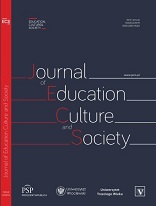
Keywords: sociocultural environment;language learning;language integrated learning;primary school students;
Thesis. The aim of the research is to confirm the role of language as a tool empowering school students to act independently in educational activities and sociocultural environment. This can be achieved by encouraging students to actively participate in educational activities, to learn a language and other academic subjects without any direct input. Methods. The article is based on a scientific literature analysis and monitoring at one of the language integrated learning centres. It studies discussed hereof showcase the importance of language integration and a broader understanding of teaching students the basics of language skills. Results. The analysis shows language skills are a result (synthesis) of abilities and competencies combined by different disciplines and programmes. It is directly related to the methods, measures, situations and environments employed in educational activities. The studies discussed hereof showcase the importance of language integration and a broader understanding of teaching students the basics of language skills. Conclusion. Based on the research results it is possible to distinguish language as an independent learning tool. This is proven by such student skills as high motivation and inclusion; courage and self-confidence; ability to analyse, reason and summarise information; openness to learning; independence; curiosity; focus and concentration. The comparison of the data and the literature analysis allow concluding that this is one of the most resultative methods to develop the language skills of students in an integrated way.
More...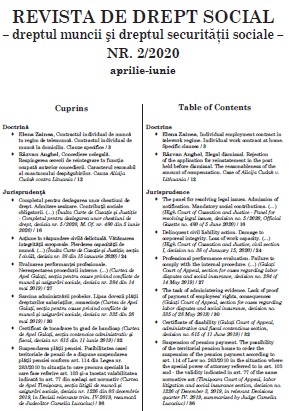
Keywords: telework; work from home; law no. 81/2018;
1. Telemunca. Noţiune. Scurtă prezentare a clauzelor specifice conţinute în contractul de telemuncă 1.1. Noţiune Având ca sursă Acordul‑cadru european asupra telemuncii[1] Legea nr. 81/2018 precizează în art. 2 lit. a) că telemunca este „forma de organizare a muncii prin care salariatul, în mod regulat şi voluntar, îşi îndeplineşte atribuţiile specifice funcţiei, ocupaţiei sau meseriei pe care o deţine, în alt loc decât locul de muncă organizat de angajator, cel puţin o zi pe lună, folosind tehnologia informaţiei şi comunicaţiilor”. Obiectul său este specific deoarece constă în prestarea unei munci cu mijloace informatice. Telemunca poate fi efectuată la locul de muncă a angajatorului, dar este efectuată, în mod regulat, în afara acestuia.
More...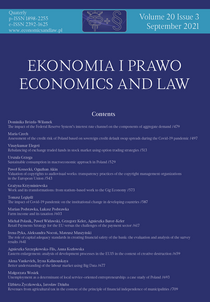
Keywords: work; labour; economic transformation; contemporary trends;
Motivation: Work as a socio-cultural and -economic phenomenon in the process of Poland’s economic transformation within the last thirty years requires special analyses due to its central role both in individual and social terms. To a significant extent, the traditional approach is based on unhelpful separation of economic determinants from the social system as a whole, which is with detriment to the ability to investigate economic processes. Economic phenomena are not the effect of actions of unrelated individuals and their decisions based on rational calculations, but also arise out of the values rooted in their way of thinking and demonstrated through culture. Aim: This paper is aimed at describing the evolution of work in the context of the changes occurring on the labour market which result from the transformation of these institutions and of the economic culture of Poles. The aim may be achieved by assuming that the experience of the so-called ‘cultural turn’, a term which perfectly suits to describe the transformation process, requires interest to be taken also in phenomena occurring in everyday life, such as values, attitudes or cultural patterns. The transformation of work and of its meaning for development will be subject to descriptive and comparative analysis in two aspects: (1) with regard to the shift from statism-based economy to flexible forms of employment and the occurrences that accompany that shift and (2) in terms of global economic and technological changes in this regard. Results: The analyses carried out allowed to describe the changes in the Polish society observed in the area of work. The stages of the changes are identified, and new trends are specified which emerge under the impact of global development and their consequences for the economy and the society
More...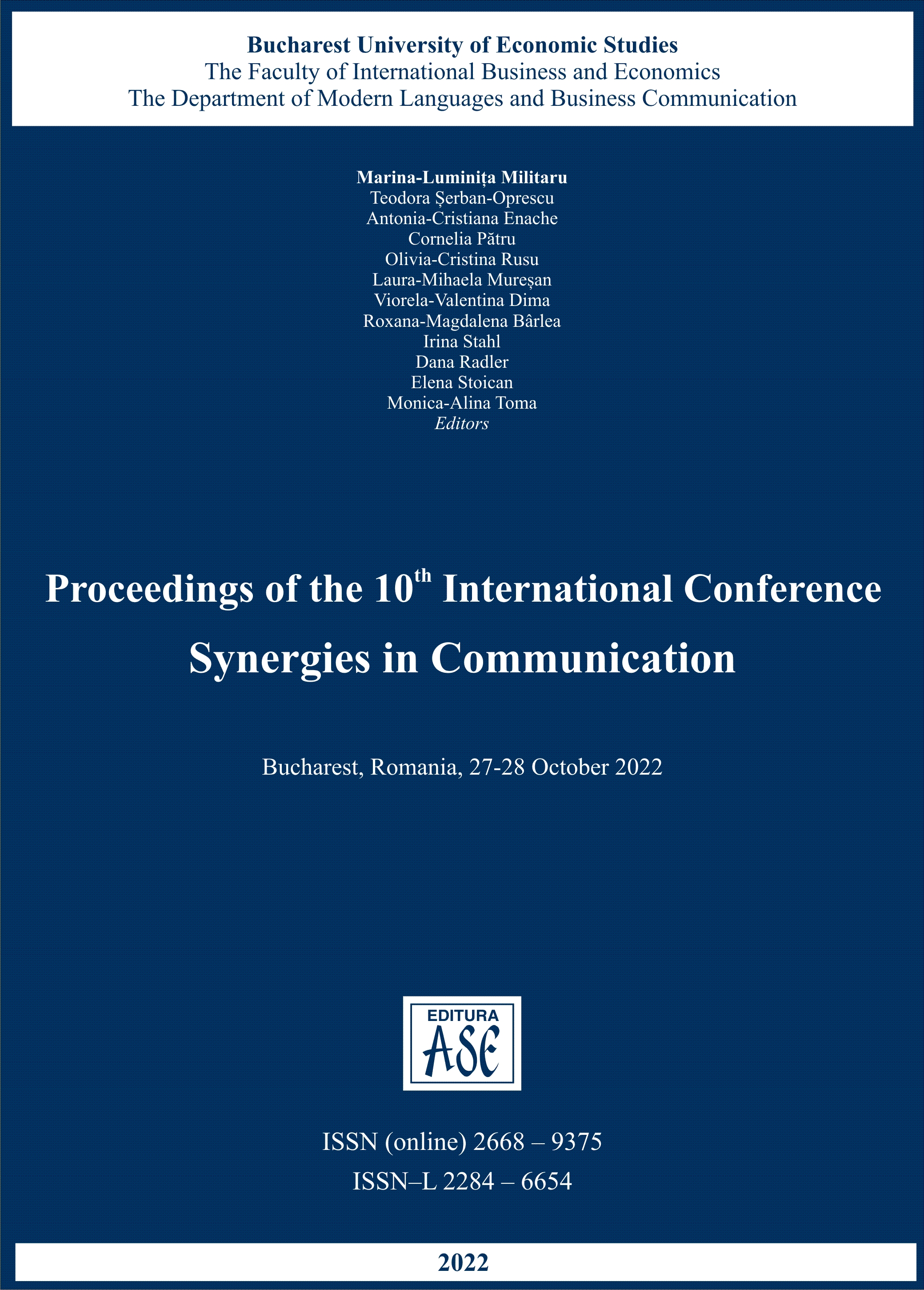
Keywords: live-action cinema; animation; future/reality co-creation; robots versus humans; multidimensional species;
The current analysis centers on the concept of “pragmatic love” and its three core characteristics – compassion, courage, commitment – as encompassed in three cinema productions belonging to the science fiction genre: Blade Runner (1982, director Ridley Scott), Baymax: Big Hero 6 (2014, directors Don Hall and Chris Williams) and Blade Runner 2049 (2017, director Denis Villeneuve). The analytical protocol pursues a two-step procedure: the definition of each of the three dimensions and its subsequent integration within the mediatic phenomenological experience. The three movies were selected due to their subtle, but convincing blending of Japanese and US-American elements (the former two) and the dissolution of these elements into a continuum of futuristic neo-noir aesthetics transcending conventional prerequisites of the prequel-sequel concatenation (the latter one). The conclusion outlines further potentialities of the concept of “pragmatic love” in everyday encounters as well as its ideological extensions into “awe” as both a necessity to action and a state of mind.
More...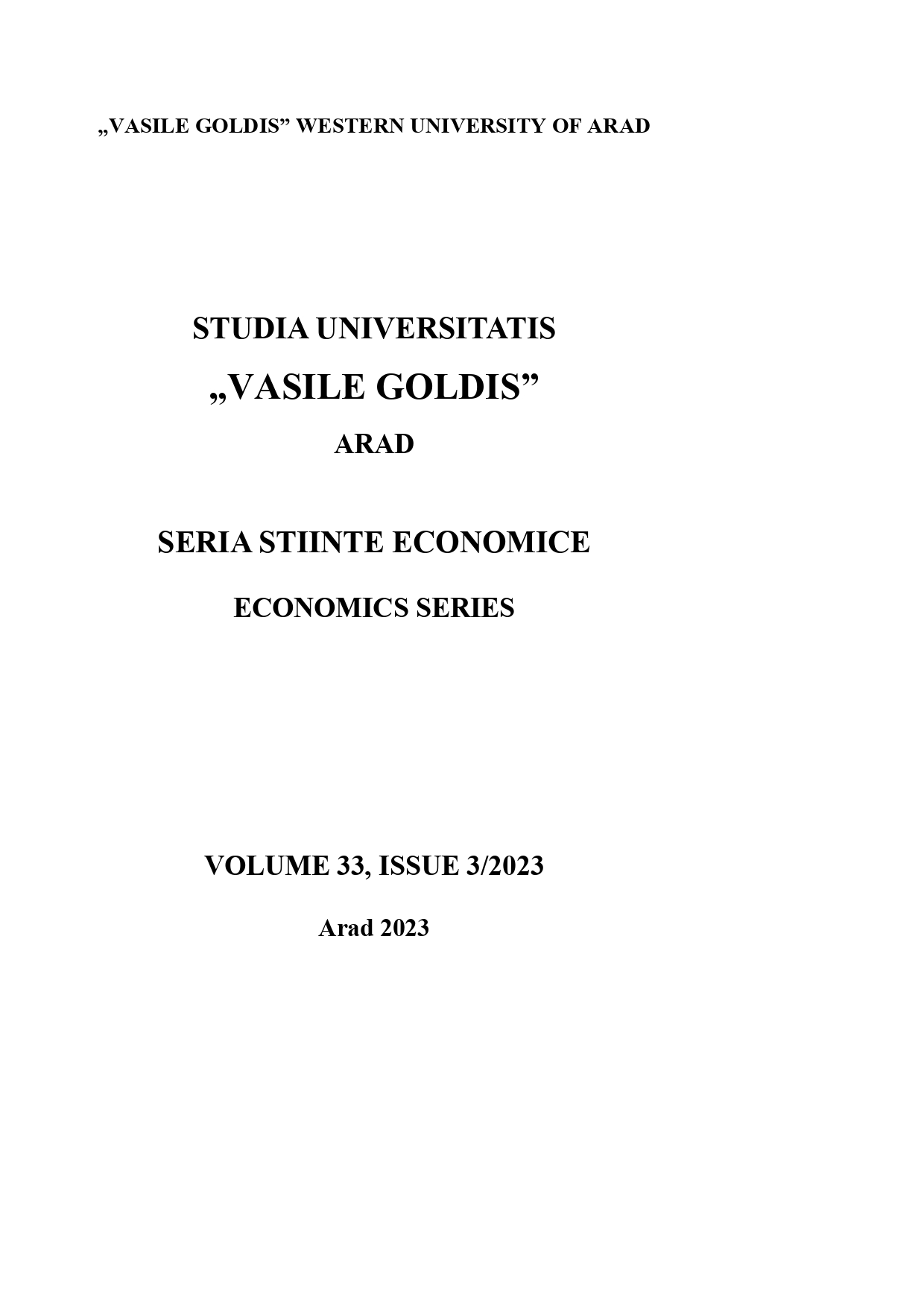
Keywords: I-ADAPT; adaptability to work; Romania; scale validation;
This study aimed to validate the I-ADAPT scale to assess the individual adaptability to work within the Romanian population. Both a pilot study and a main study were conducted on a total sample of 966 Romanians. Following the application of standard scale validation procedures, the results of our study indicated that the I-ADAPT measure of work adaptability has good psychometric properties on the Romanian population. Our findings provide evidence that I-ADAPT continues to explain the unique variance in adaptability to work even if work patterns in the Covid-19 pandemic context moved more and more from a traditional to a virtual work environment. ROa I-ADAPT measure has excellent properties concerning convergent, discriminant, and criterion-related validity. One main finding was that the “Physical” dimension of adaptability to work had no empirical support in the Romanian population. Moreover, our results indicate that the “interpersonal adaptability” and the “cultural adaptability” dimensions cannot be empirically separated in the Romanian population. To our knowledge, this is the first validated instrument that can be used to assess the individual adaptability of Romanians in the context of work. Our study is relevant for decision-makers in Romania and such actors in other EU-member countries where Romanians represent the largest group of working-age EU citizens.
More...